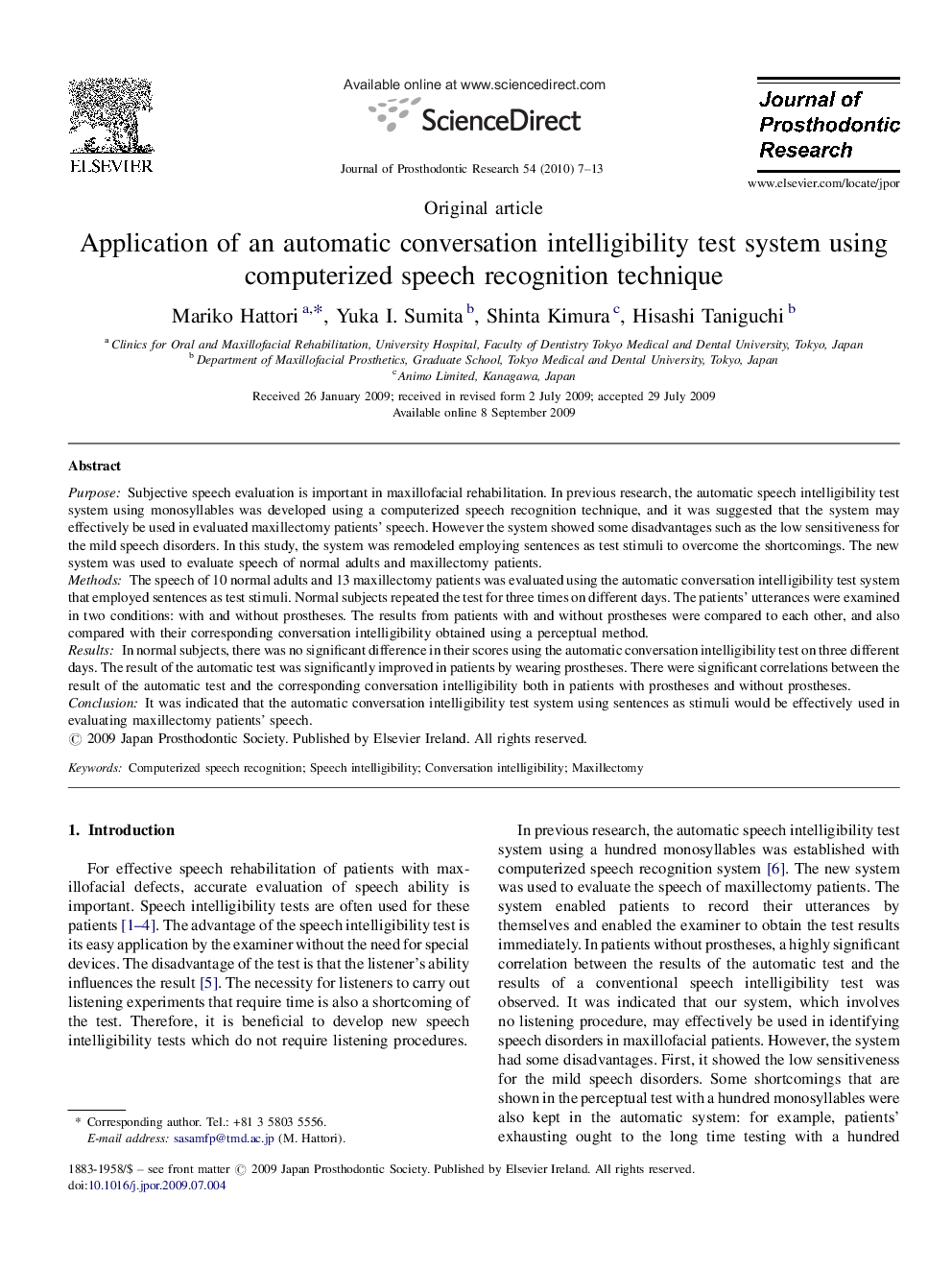| Article ID | Journal | Published Year | Pages | File Type |
|---|---|---|---|---|
| 3160711 | Journal of Prosthodontic Research | 2010 | 7 Pages |
PurposeSubjective speech evaluation is important in maxillofacial rehabilitation. In previous research, the automatic speech intelligibility test system using monosyllables was developed using a computerized speech recognition technique, and it was suggested that the system may effectively be used in evaluated maxillectomy patients’ speech. However the system showed some disadvantages such as the low sensitiveness for the mild speech disorders. In this study, the system was remodeled employing sentences as test stimuli to overcome the shortcomings. The new system was used to evaluate speech of normal adults and maxillectomy patients.MethodsThe speech of 10 normal adults and 13 maxillectomy patients was evaluated using the automatic conversation intelligibility test system that employed sentences as test stimuli. Normal subjects repeated the test for three times on different days. The patients’ utterances were examined in two conditions: with and without prostheses. The results from patients with and without prostheses were compared to each other, and also compared with their corresponding conversation intelligibility obtained using a perceptual method.ResultsIn normal subjects, there was no significant difference in their scores using the automatic conversation intelligibility test on three different days. The result of the automatic test was significantly improved in patients by wearing prostheses. There were significant correlations between the result of the automatic test and the corresponding conversation intelligibility both in patients with prostheses and without prostheses.ConclusionIt was indicated that the automatic conversation intelligibility test system using sentences as stimuli would be effectively used in evaluating maxillectomy patients’ speech.
